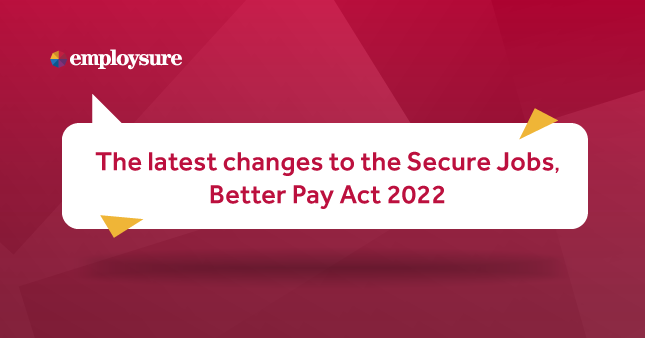
What is a Fair Work Information Statement?
A Fair Work Information Statement (FWIS) is a document issued by the Fair Work Ombudsman (FWO) that gives new employees a general overview of the National Employment Standards (NES) and conditions of employment.
As an employer, you have a legal obligation to give new employees a copy of the FWIS before or as soon as practical after they start employment. You can do this by giving them a copy of the statement in-person or by email, email link to the FWO website, mail, or fax.
Under the Fair Work Act 2009 employers who do not distribute copies of the Fair Work Information Statement may face a financial penalty for a breach of the NES.
Get Workplace Advice Now
Call Our Team of Advisers Who Will Help You with Your Workplace Questions.
Information Contained in the Fair Work Information Statement
The FWIS sets out an employee’s main rights and entitlements at work. The statement also contains information about the Fair Work Commission (FWC) and FWO.
Each year the FWO updates the FWIS and publishes a new version of the statement on or around July 1. All employers are required to distribute the most up-to-date version of the statement to new employees.
Inside the FWIS you get useful information about the following:
Agreement-making under the Fair Work Act 2009
Right to freedom of association
Role of the Fair Work Commission and the Fair Work Ombudsman
Individual flexibility agreements
Right of entry
Protection from discrimination and other adverse action
Flexibility in the workplace and the right to request flexible working arrangements
What are the 10 National Employment Standards?
The 10 National Employment Standards set out the minimum employee rights as they apply under Australian workplace law.
Below are the 10 National Employment Standards:
Maximum weekly hours of work: for a full-time employee, this is 38 hours per week, plus reasonable additional hours.
Requests for flexible working arrangements: Certain employees have the right to ask for a change to their current working arrangement.
Parental leave and related entitlements: Up to 12 months of unpaid leave and the right to ask for an extra 12 months of unpaid leave. Also includes adoption-related leave.
Annual leave: Four weeks paid leave per years. Some shift workers are entitled to an extra week of annual leave.
Personal/carer’s leave, compassionate leave, and family and domestic violence leave: 10 days of paid personal/carer’s leave, two days unpaid carer’s leave as required, two days compassionate leave as required, and five days unpaid family and domestic violence leave (in a 12-month period).
Community service leave: Unpaid leave for voluntary emergency activities and leave for jury service. Full-time and part-time employees are entitled to ‘make-up pay’ (the difference between any jury duty payment from the court and their base rate of pay for the hours they would have worked) for the first 10 days of jury duty.
Long service leave: Paid leave for employees who have been with the same employer for a long time.
Public holidays: A paid day off on a public holiday (unpaid for casuals), except where the employee is reasonably asked to work.
Notice of termination and redundancy pay: Up to five weeks of notice of termination and up to 16 weeks of redundancy pay, both based on length of service.
Provision of a Fair Work Information Statement: Must be provided by employers to all new employees.
These standards apply to all employees covered by the national workplace relations system. But only a select number of workplace entitlements apply to casual employees.
The terms of a modern award or enterprise agreement cannot offer less than the minimum standards set out by the NES. However, a Modern Award or Enterprise Agreement is allowed to offer superior entitlements.
New Employee Checklist
Preparing a new employee checklist is a great way to streamline the induction process and make sure new employees have all the information and guidance they need to transition smoothly into their new job.
Besides giving new employees a copy of the Fair Work Information Statement, you should also give them a copy of your official employee handbook containing information about the employee’s job description, tasks and duties, company culture, and policies and procedures. Other important documents you should give inductees include banking, Tax File Number and superannuation details, and Workplace Health and Safety policy.
Make sure the new employee has carefully reviewed all of these materials and that they clearly understand the contents of each document. You can confirm this by having the new employee sign an acknowledgement form.
All documents signed by the new employee must be stored in a secure place which complies with privacy laws.
You can get a copy of the FWIS from Employsure. Please keep in mind this is a general document. If you need advice in regards to a specific aspect of the Australian workplace relations, please call Employsure on 1300 651 415.
Get Workplace Advice Now
Call Our Team of Advisers Who Will Help You with Your Workplace Questions.



